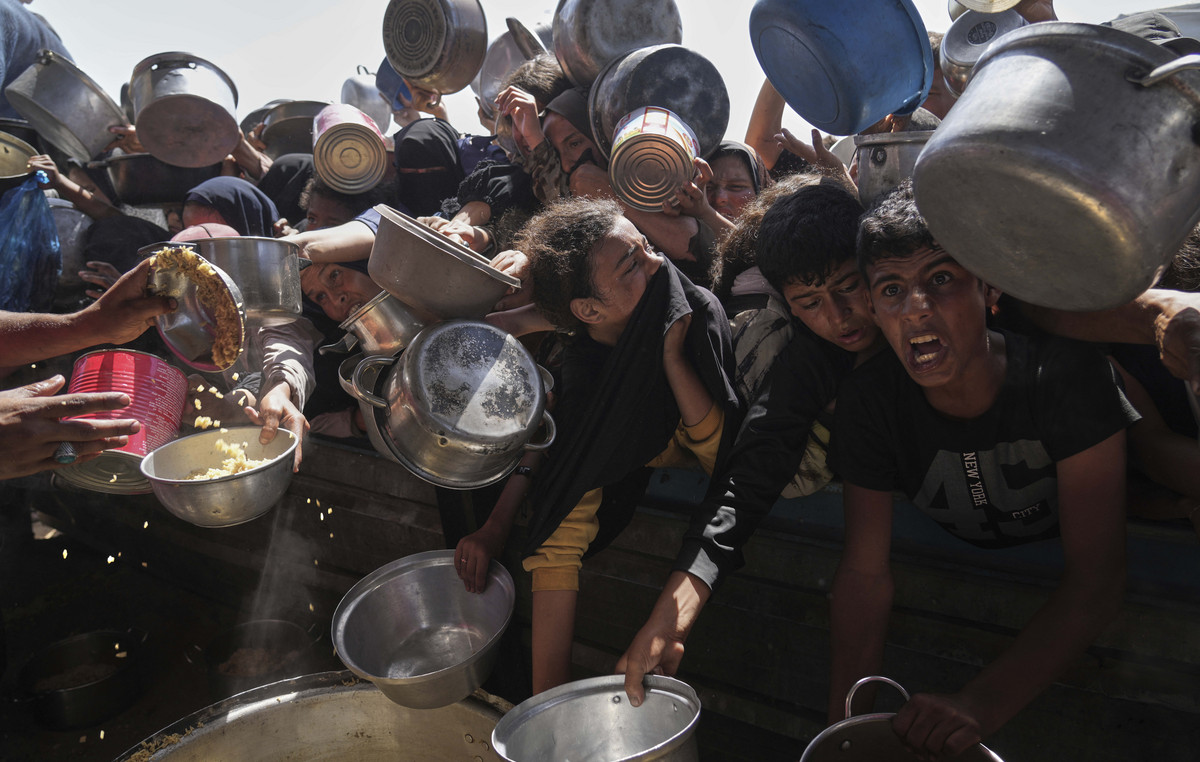Brazil assumes the rotating presidency of the UN Security Council from this Sunday (1st). In the month he will spend at the helm of the body, there are no meetings planned on the war in Ukraine.
The government will also have to deal with the crossfire between the United States, Russia and China in the discussion about sending an aid mission to Haiti.
Government sources say that the war in Ukraine should not be emphasized in the Brazilian mandate, even though it is a central theme in the UN body.
Brazilian diplomacy understands that Russia stops any discussion on the subject, so, pragmatically, there is nothing that can be done. The Russians are one of the five permanent members of the Council and therefore have veto power over the body’s resolutions.
There is also a perception that Lula did not change his opinion about Ukrainian President Volodymyr Zelensky, even after the meeting at the UN Assembly in September in New York. Interlocutors claim that Lula considers the Ukrainian president to be arrogant, and the meeting about two weeks ago only confirmed her view.
In a briefing on Brazil’s presidency of the Council, the Secretary of Multilateral Affairs of the Ministry of Foreign Affairs, Ambassador Carlos Márcio Cozendey, stated that, although there is no meeting planned, throughout the month “one or two meetings on Ukraine” can happen because many countries have demanded it.
The possibility of meetings was only mentioned after the ambassador was asked about the absence of planned debates on the conflict in Eastern Europe.
The ambassador also stated that the war is nothing new and no progress should be expected during Brazilian leadership in the Council.
“If there were any new developments, the presidency could come in and take advantage of that, call a meeting, create a process within the Council. But. At the moment, there isn’t much of this scenario”, said Cozendey.
The ambassador stated that at the moment polarization prevails. “One side goes and proposes a meeting on Ukraine, an issue that is bad for Russia, and the other side goes and proposes an issue that is bad for Ukraine, it’s a bit like that dynamic,” he said.
Dispute over mission in Haiti
One of the central issues during the month of Brazil’s presidency will be the sending of military aid to Haiti, a delicate topic both internally and externally for the Brazilian government.
The United States proposed, together with Ecuador, a multinational aid mission, which would be led by Kenya. The Americans defend the insertion of the mission under Chapter 7 of the UN Charter, which allows the use of force to “reestablish international peace and security”.
At the briefing, Itamaraty confirmed that there is some resistance, especially from China and Russia, regarding the resolution.
Government sources say that Itamaraty is trying to position itself in the middle of the road, but without knowing exactly what it wants. There is a fear that, by endorsing the mission, the country could alienate the Russians and the Chinese.
Another central point of the discussion is the sending of Brazilian military troops. Cozendey stated that Haiti even requested the support of police officers from Brazil for training in the country.
“The only request at the moment is the one I mentioned, that people could go to Haiti and talk to the people who are organizing the mission to help with planning. For now, this is what exists”, said the ambassador.
Vinícius Rodrigues Vieira, professor of international relations at Faap and FGV, believes that sending military personnel to Haiti would strengthen the image of the Armed Forces, something that the government wants to avoid in the midst of the CPMI investigating the acts of January 8th.
“First, Brazil needs to get a civilian president to take back the reins of the Armed Forces, and this will not happen until the issue of January 8 and all the support for Bolsonaro’s coup is properly resolved,” says Vieira
Security Council reform
Brazil assumes the presidency of the UN Security Council amid criticism about the functioning of the collegiate and the loss of effectiveness of multilateral institutions. And President Lula has been one of the most incisive voices in defense of collegiate reform.
The group first met in 1946, and its objective is to maintain international peace and security. But its ability to avoid conflict has been questioned since the Iraq war in 2003, skepticism that only increased after the invasion of Ukraine.
The five countries with permanent seats — China, the United States, France, the United Kingdom and Russia — have veto power over any decision.
Russia could veto resolutions that condemn its aggression against Ukraine, just as the US would veto condemnation of the War in Iraq.
On a visit to Madrid in April, Lula accused the permanent members of being promoters of war.
“We live in a world where the UN Security Council, the permanent members, all of them are the biggest arms producers in the world, they are the biggest arms sellers in the world and they are the biggest war participants in the world,” said the president at the time.
At the UN General Assembly meeting, last Tuesday (19), Joe Biden was the only permanent member of the Council to participate in the meeting, which demonstrated the emptying of the main global multilateral forum.
But, as the Brazilian ambassador himself stated at the briefing, the Security Council is not the correct forum to discuss reforms, but the UN Assembly is.
Guilherme Casaões, political scientist and professor at FGV, believes that there is nothing that can be done in the short term.
“The discussion on Council reform has been going on since at least the 1990s, and the model that today serves as a parameter for discussions, the proposal presented by the G4 [aliança entre Alemanha, Brasil, Índia e Japão para ampliar o Conselho]born in 2004, he points out.
“In other words, it is not about bringing new arguments, but about creating political conditions to make the reform possible.”
But the professor believes that with the world divided and going through important challenges, such as the war in Ukraine, this consensus seems further away.
Board Composition
The UN’s most powerful executive body is made up of 15 countries, ten of which are rotating — with two-year terms — and five are permanent. The rotating presidency lasts for one month.
Brazil is the second country that has had the most mandates on the Council, just behind Japan, which makes it the emerging nation with the greatest participation in the collegiate, having remained 22 years in total.
The current period for Brazilians is valid until December of this year.
It is not customary for the president to participate in Council meetings, but the chancellor does. The agendas are defined in advance, but the minister can choose which debates he wants to participate in New York.
The Minister of Foreign Affairs, Mauro Vieira, will participate in three debates: the first, on October 20th, which deals with how multilateral organizations can prevent conflicts before they occur.
The second will be on the 24th, on the Middle East, where Palestine will be discussed.
The third, on the 25th, with Vieira presiding over the debate “Women, peace and security”, when an annual report on the topic will be released, dealing with the role of women in conflict situations and their disproportionate effects on them.
Analysis: At the UN, Lula calls for “new economic governance” of the world
Source: CNN Brasil
Bruce Belcher is a seasoned author with over 5 years of experience in world news. He writes for online news websites and provides in-depth analysis on the world stock market. Bruce is known for his insightful perspectives and commitment to keeping the public informed.







